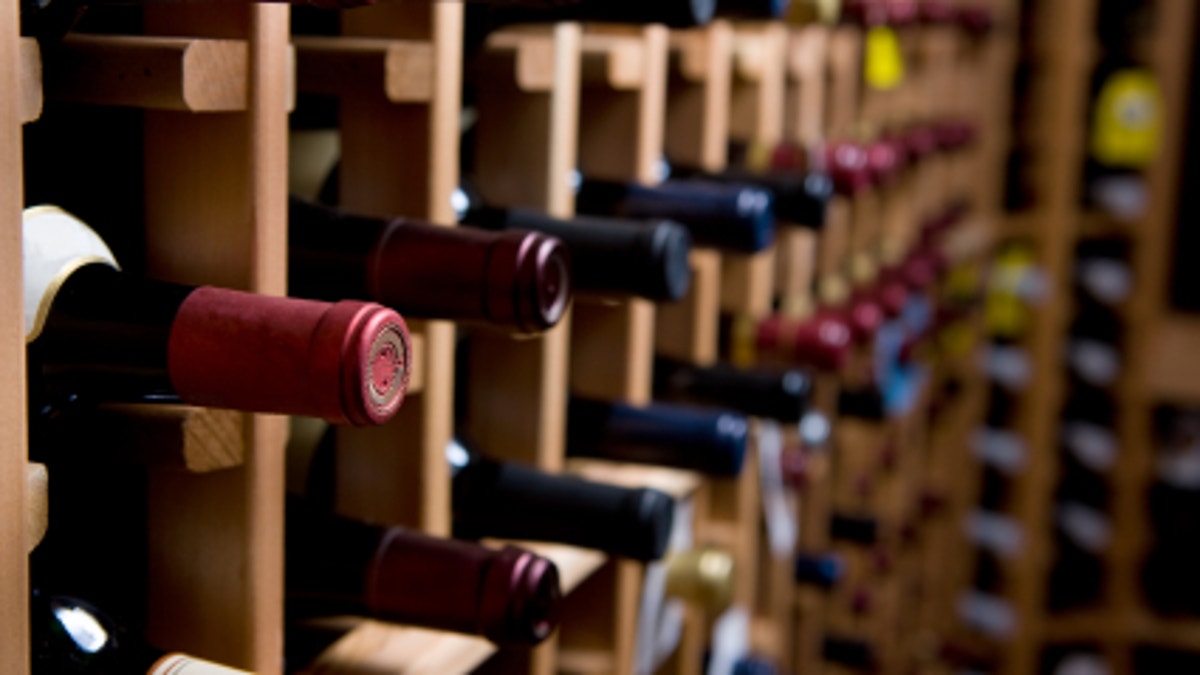
55 degrees is widely considered the “sweet spot” for storing wine, (iStock)
Thinking of socking away some bottles of your favorite wine for a later date? Aged wine can definitely be worth the wait, but sticking a bottle in a dark closet next to your hot water heater can jeopardize your investment. Wine is perishable and needs specific conditions to age well.
Here are five things to keep in mind when storing your wine for the long haul:
Sunlight: Ultraviolet light from any source, whether sunlight or fluorescent light, can age wine prematurely. For this reason many wines that improve with age (for tips on selecting them, click here) come in colored bottles for additional protection. It’s best to avoid exposure to any constant light source when storing your wine. Investing in a wine storage unit with a UV protected/filtered glass door can be a good step toward protecting your investment.
Temperature: 55 degrees is widely considered the “sweet spot” for storing wine, though there is some leeway. Prolonged exposure to temperatures above 70 degrees can prematurely age wine, and exposure to extreme heat, even for a short time, can result in a “cooked” wine whose bright fruit flavors are stewed or raisiny. If you notice any stickiness or drips around the capsule, or if the cork is pushed out of the bottle to any degree, there’s a good chance that wine has been exposed to heat at some point and will best be left on the store shelf and not in your cellar.
Humidity: Humidity keeps the cork sufficiently hydrated, which protects it from oxygen – wine’s worst enemy! A humidity level of 50 to 80 percent is ideal, which is one reason not to store wine for a long time in a refrigerator. Refrigerators are designed to mitigate humidity, so long-term storage could expose your wine not only to oxygen, but to the aroma of last night’s chicken curry.
Vibration: Vibration from any mechanical source is a no-no! It can agitate wine, which is believed to accelerate the aging process. Also, over time, wine naturally produces sediment that collects at the bottom of the bottle. Exposure to vibration can disturb the sediment, causing it to remain suspended in the wine. If you prefer your Bordeaux sans grittiness, store your wine somewhere cool, dark and vibration-free to ensure maximum enjoyment.
Sideways: It’s the title of one of my favorite wine movies (for more food and wine film recommendations, click here), and it’s the ideal position to store your wine. Laying a bottle on its side lets the wine remain in contact with the cork, which prevents it from drying out. Of course, storing bottles on their sides isn’t necessary for wines with screwcaps or glass or plastic corks, but it’s still an efficient way to maximize storage space.




















